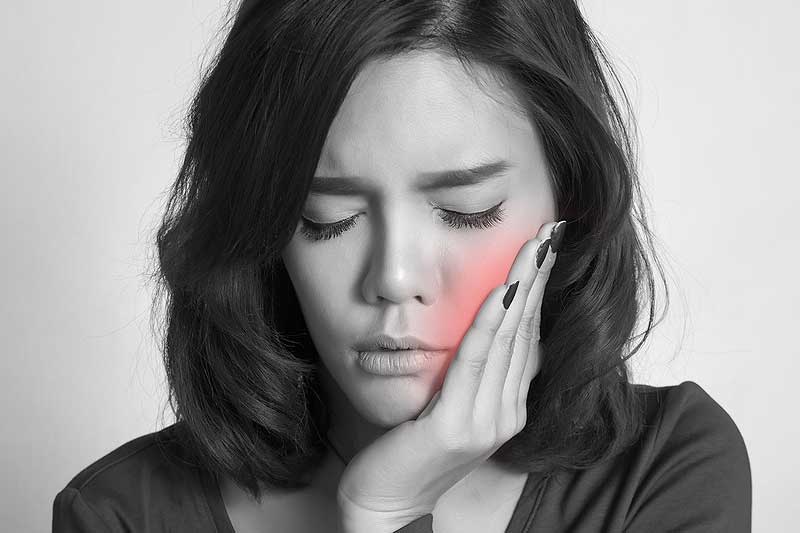Have you ever felt a sting in your teeth after taking a cold or hot drink or when a cold wind blew against them? Well, that could be tooth sensitivity. Tooth sensitivity is a common dental issue that can cause pain and discomfort. Up to 40 million adults in the United States suffer from tooth sensitivity. The pain that comes with sensitivity is sudden and sharp but temporary and may shoot into the endings of the nerves in the teeth. Tooth sensitivity can, however, be treated.
What Causes Tooth Sensitivity?
Tooth sensitivity begins to manifest when the enamel is worn out, exposing the dentin to the harsh external conditions. The dentin has fluid-filled dentin tubules which when exposed, get affected by temperature changes and manifest as tooth sensitivity. It is, therefore, vital to understand the cause of your tooth sensitivity so that treatment and prevention are made easier. Sensitivity is caused by:
- Gum disease and gingivitis
- Wearing off of the enamel
- Aggressive brushing of teeth
- Tooth exposure at the gum line and decay
- Gum recession
- Cracks in teeth
- Grinding of the teeth resulting in the wearing down of the enamel
- Whitening of the teeth. The harsh chemicals used during whitening remove both the stains and enamel.
- Acidic foods that encourage the reduction of the enamel
- Long-term mouthwash usage. The acids in the mouthwash may cause the tearing down of the enamel. Once the dentin is exposed, the sensitivity becomes worse. An alternative to these kinds of mouthwashes is one containing fluoride.
Sometimes, sensitivity is hereditary or habit based and can be treated naturally at home.
Tips to help tooth sensitivity at home
- Brushing and flossing. Brush your teeth for two minutes in each session with toothpaste helps reduce sensitivity. Do this twice daily and ensure you use a soft-bristled toothbrush and toothpaste with low abrasion. Flossing will reduce sensitivity by helping get rid of plaque between the teeth.
- Follow a low-acid diet. Acidic diets can accelerate the deterioration of the enamel. Avoid citrus fruits, caffeine, and carbonated drinks. If you have to take drinks like soda, use a straw to help avoid contact with the teeth. Avoid brushing your teeth immediately after as acid softens your enamel. Instead, take milk first to neutralize the acidic content before brushing.
- Use a desensitizing toothpaste. There are several toothpaste products for sensitive teeth. Fluoridated toothpaste is beneficial to sensitive teeth as opposed to tartar control toothpaste. You can spread a layer of the fluoridated toothpaste on the sensitive teeth to help combat sensitivity.
- You may need to invest in a mouth guard if you grind your teeth. A mouth guard will help you resist grinding. Grinding contributes to sensitivity by wearing away the enamel.
Dental procedures can also be done to reduce sensitivity including:
- Fluoride varnish and gel
- Surgical gum graft. This procedure helps in the reduction of sensitivity and protection of the root.
- Bonding, inlays, and crowns. Crowns and inlays can help fix flaws in the teeth. They can also delay decay.
- Root canal. A root canal can help a patient deal with severe tooth sensitivity that cannot be helped by any of the methods mentioned above.
If you have sensitive teeth and the situation is exacerbating, you may need to visit a dentist who will help you better understand how you can treat and prevent sensitivity from coming back. With our highly qualified dental professionals at Victory Cosmetic Dentistry, you will be in safe hands. Our dentists will help you through your journey to a healthy smile without any pain. You can schedule a visit to our offices for an appointment.





